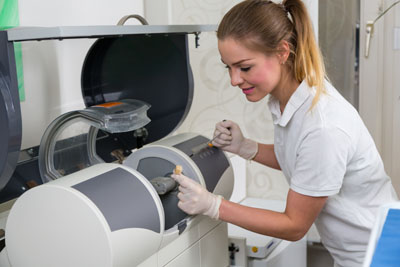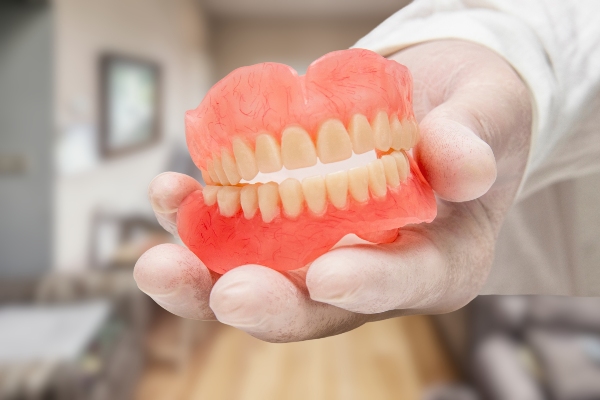How to Care for Implant Crowns

Dental implant crowns are artificial teeth that are screwed to the top of the titanium posts that are fused to the jaw to hold the teeth in place. The implants have become a popular way to replace one or more missing teeth because they are visually indistinguishable from natural teeth. Since the implant crowns are usually made from porcelain and cannot decay, most people assume they do not require as much attention as their natural teeth, which is not the case.
Taking care of dental implant crowns
Cleaning implant crowns is similar to the way people clean their natural teeth. However, since the crowns are artificial, there are a few things to keep in mind. Bacteria and food particles can get stuck in the areas around the implant, which can lead to the formation of plaque. This can lead to infection or gum disease if left untreated.
To ensure that the patient's artificial teeth are as clean as possible, dentists recommend using the following tools to help take care of the implant crowns:
Interproximal brushes
Even though regular toothbrushes do a good job removing biofilm from the surface of the teeth, dentists recommend using interproximal brushes to clean the implant crowns because they can reach parts of the teeth that regular toothbrushes cannot. This helps to prevent the buildup of plaque under the artificial tooth. Electric toothbrushes are also fine to use because they do a better job cleaning the teeth than regular toothbrushes and have smaller heads, which allow them to clean the implant crowns better than a regular toothbrush can.
Non-abrasive toothpaste
Most people do not pay attention to the type of toothpaste they use to clean their teeth because the type of toothpaste they use gets the job done. However, dentists suggest the use of non-abrasive toothpaste for people with dental implants because it is gentler on the surface of the artificial tooth than regular toothpaste.
Oral irrigators
Oral irrigators or water flossers help to reduce plaque buildup and inflammation because they can be used to flush out the plaque and debris that get stuck under the implant crowns. Dentists recommend using a water flosser with a non-metal tip to clean the underneath of the implants at least twice a week.
Protective appliances
A dentist will recommend a mouthguard or retainer to their patients if the patients grind or clench their teeth while they sleep. The retainer or mouthguard protects the implant crown from damage caused by wearing from involuntary teeth grinding during sleep.
Regular professional cleaning
The best way to keep a dental implant crown clean is by having the dentist clean the implant regularly. The dentist will thoroughly clean the threads of the implant, the surrounding gum tissue and the patient’s natural teeth, keeping away bacteria that can lead to infection.
Conclusion
Cleaning your dental implant crowns is important because it helps maintain the health and longevity of the implant. If you have implants and want to learn more ways you can properly take care of them, schedule an appointment with your dentist to get more information.
Request an appointment here: https://brimhalldentalgroup.com or call Brimhall Dental Group at (661) 249-1122 for an appointment in our Bakersfield office.
Check out what others are saying about our services on Yelp: Read our Yelp reviews.
Recent Posts
Dentures are a popular teeth replacement solution that can improve the function and appearance of your smile. They are designed to look like natural teeth and consist of different materials, such as acrylic and metal. Whether you are new to dentures or have been wearing them for years, it is important to properly care for…
When sudden dental pain occurs, an emergency dentist can provide critical relief and timely treatment. A toothache often appears unexpectedly, disrupting daily activities or restful sleep at night, signaling that you need urgent dental care. Understanding what steps to take when this type of pain occurs can help prevent further complications to your teeth and…
Dentures will give you the freedom to smile, speak, and eat well. These custom-fit restorations can provide comfort while wearing them. Knowing how these restorations can help your appearance, you can make informed decisions before your treatment. Here are the details on how dentures can enhance your smile.Dentures can replace missing teeth and can be…
Dentures are durable and effective teeth replacements. However, even the most reliable dental devices may start to fit differently over time. This may be caused by changes in the jaw or something as simple as everyday wear and tear. Fortunately, we can reline dentures so that they feel like new again.Relining is a process in…


